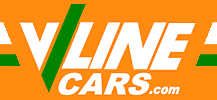V/Line carriage numbering scheme
V/Line’s fleet of locomotive hauled carriages all conform to single numbering scheme.
History
Newsrail June 1984 details the introduction of the numbering scheme:
All steelbodied country passenger rollingstock are to be numbered as a single series so that individual numbers allocated to each vehicle are permanently retained irrespective of subsequent modification or reclassifications.
The proposed number series are as follows:
- N cars and proposed intercity cars: 1-100 (unchanged) (V/LineCars note: proposed intercity cars = proposed R cars?)
- H cars and Tulloch trailers: 101-200 [V/LineCars note: Tulloch = MTH cars]
- S and Z cars, sleeping and special cars: 201-300
- D (formerly VBPY) vans: 301-400 (as per previous direction)
It is not envisaged that any alteration be made to the numbering of wooden bodies cars having regard to the short remaining life of these vehicles, or to joint stock cars used on interstate services.
As well as the initial allocation of carriage classes to number groups.
Class Numbers BS 201-213 VFS 214 VFR 215 VFX 216-217 BRS 221-230 VRS 231-233 Moorabool (RS) 234 Avoca (RS) 235 Murray (RS) 236 Norman (OS) 237 VHN 241 AZ / ACZ 251-258 VBK 259-263 BZ 264-270 VFK 271-276 SJ 281-284 SS 285-286 SZ 287
Carriage numbers
Carriage numbers form logical groups:
- 1-100 = original N cars
- Low 200s are BS cars.
- 251-263 = original AZ cars (lots of small saloon windows)
- 264-276 = original BZ cars (fewer but larger saloon windows)
N cars were roughly built in numerical order. BRN cars were a later development, hence they are higher up in the number space. The original sets appeared as ACN-BN-BN.
Set numbers
Carriage sets were also allocated set numbers.
- Car sets 1-19 are N sets
- Car sets 21-35 are H sets
- Car sets in the 50-60s were 1980s/1990s era Z sets, given by ACZ in consist
The H set number space has room for sets numbered up to 40, not all sets exist today - a number have been ‘broken up’ and the carriages put into other sets.
Relationships between carriage and set numbers.
With some maths you can draw relationships between the two:
- Divide ACN number by 3 to get the set number and vice versa.
- Add 200 to the old Z set numbers for the ACZ number and vice versa.
- Subtract 100 from a BCH code for the original H set it appeared in
- Subtract 140 from a BH code for the original H set it appeared in
- Subtract 160 from a BTH code for the original H set it appeared in
- Subtract 180 from a BIH code for the original H set it appeared in
The gaps in carriage numbering were to allow the different types of carriage to start with ‘round’ numbers:
- N cars at 1
- H cars at 101
- S cars at 201
- Z cars at 241
Power and luggage vans
CP vans
- CP: 291-294
D vans
- D: 301-3xx
- DN: 401-404
Power vans
- PH: 451-453 (PH454 constructed in 2009)
- PCJ: 491-492 (PCJ493 created in 2009)
